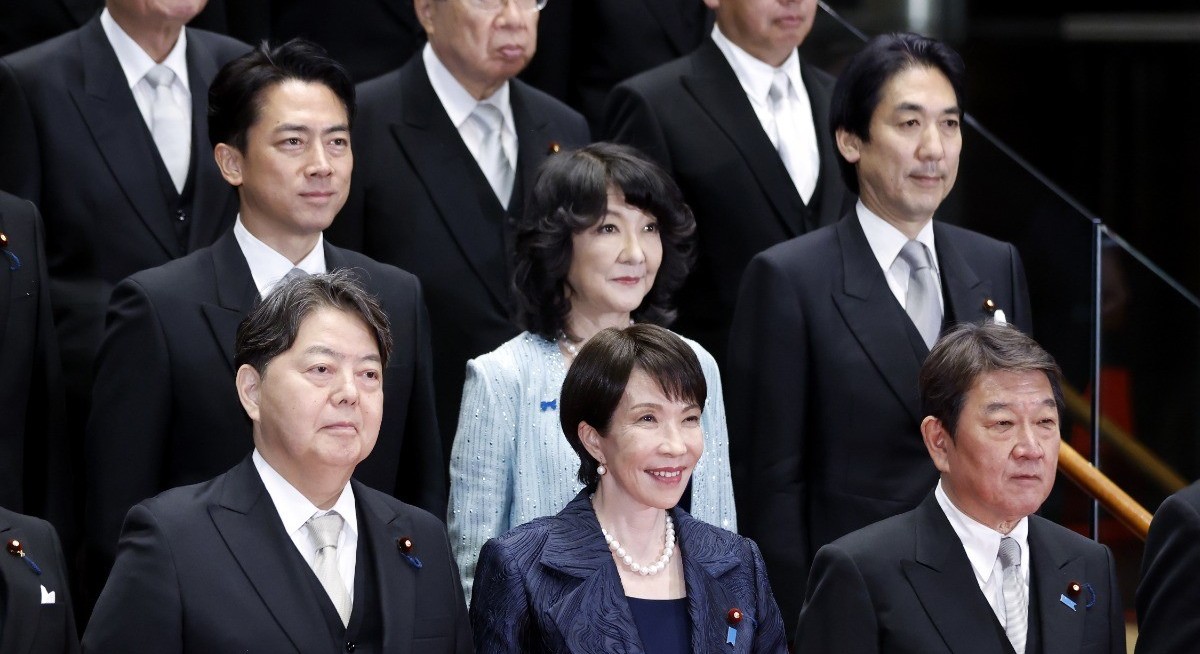(Oct 23): New Japanese Prime Minister Sanae Takaichi will push for the establishment of an official group to monitor whether investments and takeover bids from abroad pose security risks.
It will be a Japanese version of the Committee on Foreign Investment in the US, or CFIUS, an inter-agency group led by the Treasury secretary that reviews whether investments from overseas may carry risks such as revealing military secrets or technology leakage.
The coalition government formed by Takaichi’s Liberal Democratic Party (LDP) and the Japan Innovation Party released this week their shared policy goals, and that included creating the equivalent of the CFIUS in Japan. They aim to get approval for the group by the end of next year’s regular Parliament period.
One example of a CFIUS review that drew significant attention was Nippon Steel Corp’s plan to acquire US Steel Corp in 2023. The collapse of Broadcom Ltd’s US$117 billion hostile takeover of Qualcomm Inc in 2018 after a review by the committee on US national security concerns is another.
Japan’s creation of its own CFIUS would highlight how the government is facing increased pressure to protect local companies, as concern grows that China will seek control of key technologies and real estate. Japan is also trying to attract more foreign investors by pushing companies to boost shareholder returns, but that drive is tempered by the need to bolster national security as geopolitical tensions flare up.
“Until now, Japan has had an extremely weak system for monitoring corporate acquisitions and investments by foreign capital from the perspective of national security,” said Seiichi Tamura, a senior partner in Japan at consulting firm Roland Berger.
See also: Wall Street bonuses expected to hit record as bank profits surge
Japan now screens foreign investments based on its foreign exchange regulations, but “very few transactions have been rejected, and the reality is that we have not been able to conduct effective screening due to a lack of personnel”, Tamura said.
Still, some analysts say pushing too hard on monitoring of foreign investments may have undesirable consequences. While increased government intervention in the market in the pursuit of economic security “is not unique to Japan”, its measures to enhance economic resilience and reduce risks “come with their own risks to Japanese openness, competitiveness and productivity”, wrote Shiro Armstrong, an economics professor at Australian National University in a December 2024 report.
It’s still unclear what shape a Japanese version of the committee will take, Satsuki Katayama, who was selected as Japan’s first female finance minister, told reporters that the creating such an organisation is “very appropriate”.
See also: Indonesia changes tack in bid to get banks to lend more, boost growth
Takaichi said at a news conference last month ahead of the election for the leader of the LDP that she wanted to launch such a committee. The Japan Innovation Party has also called for an organisation that regulates land acquisition by foreigners and overseas capital.
China challenge
China, the world’s second-biggest economy, is the dominant target of CFIUS actions. Of the total nine cases in which the US president banned acquisitions based on recommendations from the committee, China was involved in some way in all cases except for the Nippon Steel case, the Japan External Trade Organization said in a report.
Japan hasn’t yet clearly said which industries it will prioritise in protecting from the perspective of national security, but doing so with the help of a foreign investment committtee may help boost economic growth, said Katsuhiko Nakagawa, a senior partner at Roland Berger Japan.
Uploaded by Tham Yek Lee




